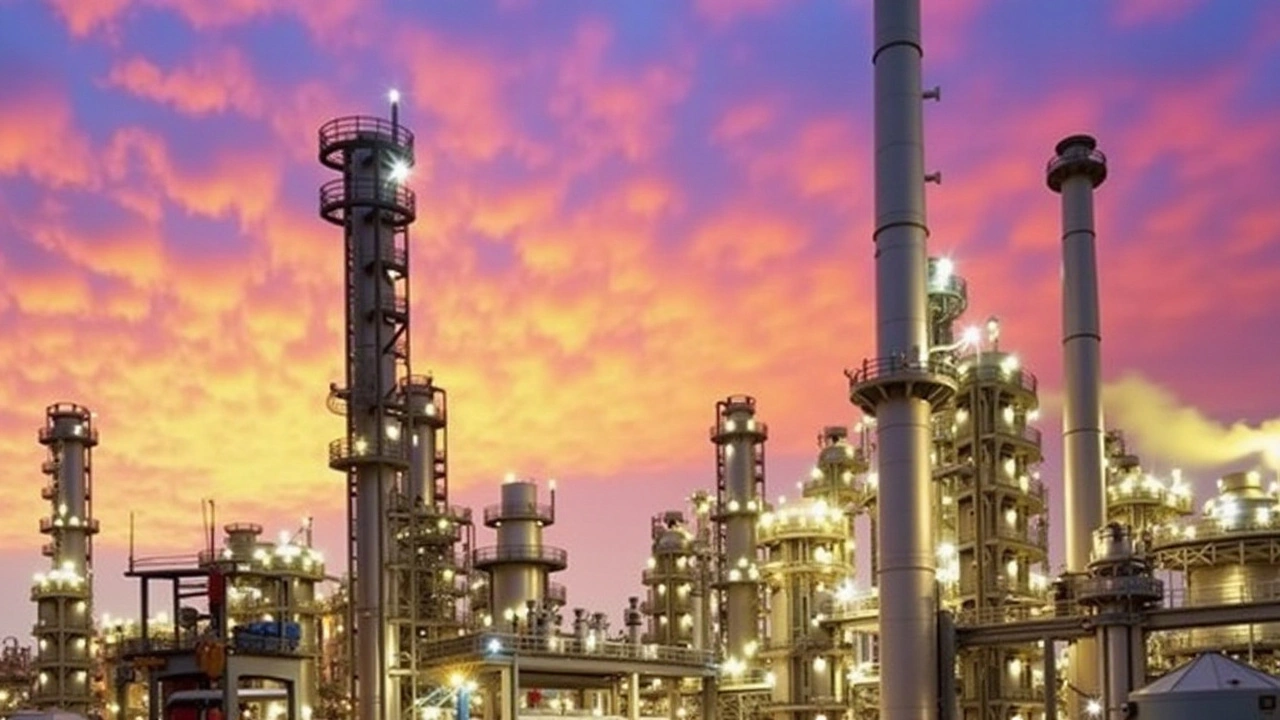Dangote Refinery Explained: What It Is and Why It Matters
If you’ve heard the name Dangote Refinery in the news and wondered what all the buzz is about, you’re in the right place. This massive plant, built by Aliko Dangote, aims to turn Nigeria into a net exporter of refined petroleum products. Below, we break down the basics, the expected benefits, and the latest happenings around the project.
Key Facts About the Facility
The refinery sits on about 1,500 hectares near Lagos and is designed to process 650,000 barrels of crude a day. That makes it one of the largest single‑tray refineries in Africa. It includes a petrochemical complex that can produce gasoline, diesel, jet fuel, and polypropylene, among other products. The plant also has a power plant and a seawater desalination unit to keep operations running smoothly.
Construction started in 2016 and the first commercial output was reported in early 2024. Since then, the refinery has been ramping up production, gradually adding more units and increasing its run‑rate to meet both domestic demand and export goals.
Economic Impact and Challenges
For Nigeria, the refinery promises several big wins. First, it reduces the country’s reliance on imported fuels, which have historically cost a lot of foreign exchange. Second, the project is expected to create thousands of jobs – both directly at the plant and indirectly through supporting industries like transport, logistics and maintenance.
However, the road hasn’t been without bumps. Delays in pipeline connections, occasional power shortages, and the need for skilled staff have all caused hiccups. The government is working on policy reforms and infrastructure upgrades to smooth these issues, but progress can be uneven.
On the energy front, the refinery helps Nigeria meet its climate commitments by using newer, more efficient technology that emits less pollution than older plants. Still, critics point out that fossil fuel expansion may clash with long‑term renewable goals, so the debate continues.
Recent news from mid‑2025 shows the refinery hitting a new milestone: it has started exporting diesel to neighboring West African countries. This marks a shift from simply feeding the local market to becoming a regional fuel hub. The export contracts are expected to bring in additional revenue and improve Nigeria’s trade balance.
Another development worth noting is the ongoing partnership with international firms for technical support. Companies from the United States, Europe and Asia are providing expertise on process optimization and safety standards, helping the plant run more reliably.
So, what does all this mean for the average person? If you’re buying gasoline or cooking gas in Nigeria, prices could become more stable over time as the refinery reduces import costs. For businesses, a steadier supply of petrochemicals can lower production costs for plastics, fertilizers and other goods.
Bottom line: Dangote Refinery is a game‑changer for Nigeria’s energy landscape. It’s big, ambitious, and still evolving. Keep an eye on official announcements and local news for updates on production levels, export deals and any policy changes that could affect fuel prices.
Dangote Refinery Revolutionizes Nigeria's Fuel Market with Petrol Production
- Jeremy van Dyk
- 16 Comments
The Dangote refinery, capable of processing 650,000 barrels of oil per day, has successfully completed test production and is set to begin selling petroleum immediately. This development promises significant relief to Nigerians facing severe petrol scarcity. The facility is expected to reduce the country's heavy reliance on fuel imports, potentially saving billions in foreign exchange.
Read more

